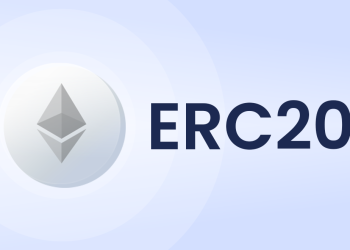A decentralized exchange (DEX) is a platform that allows users to buy and sell cryptocurrencies and other digital assets without the need for a central authority. DEX use smart contracts to automate and facilitate transactions, and they are built on top of blockchain platforms, such as Ethereum.
One of the main advantages of DEX is that they offer a decentralized and secure way to trade cryptocurrencies and other digital assets. Because they are built on blockchain technology, DEX is resistant to tampering and censorship, and they provide a transparent and auditable record of transactions.
Another advantage of DEX is that they can offer faster and cheaper trading compared to traditional exchanges. Because they do not rely on a central authority, DEX can avoid the fees and delays associated with traditional exchanges.
However, DEX also has some disadvantages, including limited liquidity, poor user experience, and the risk of hacking and loss of funds. As with any financial product or service, it is important to carefully evaluate the risks and potential rewards before using a DEX.
What are the Advantages of DEX?
DEX has several advantages, including:
- Decentralization: DEX ise decentralized platforms that are not controlled by a single entity or organization. This makes them resistant to tampering and censorship, as there is no single point of failure.
- Security: DEX use blockchain technology to secure the data they store, which makes them resistant to hacking and fraud.
- Transparency: All transactions on a DEX is recorded on the blockchain and can be viewed by all network participants. This creates a transparent and auditable record of transactions.
- Lower fees: DEX can offer lower fees compared to traditional exchanges, as they do not rely on a central authority and do not has the same overhead costs.
- Faster trading: DEX can offer faster trading compared to traditional exchanges, as they do not has to go through a central authority to process transactions.
- Accessibility: DEX can be accessed from anywhere in the world, which makes them more accessible to a wider range of users.
What are the Disadvantages of DEX?
DEX has several disadvantages, including:
- Limited liquidity: DEX often has lower liquidity compared to traditional exchanges, which can make it difficult to buy or sell large amounts of cryptocurrency without affecting the price.
- Poor user experience: Some DEX can has a poor user experience, including slow transaction speeds and high fees.
- Risk of hacking and loss of funds: DEX ise vulnerable to hacking and other security breaches, which can lead to the loss of funds.
- Complexity: DEX can be complex and may not be suitable for all investors, particularly those who are not familiar with cryptocurrencies and blockchain technology.
- Limited adoption: DEX is still a relatively new and rapidly evolving sector, and they has limited adoption compared to traditional exchanges. This can limit the availability and variety of financial products and services.
DEX: Future of Exchange
DEX has the potential to revolutionize the exchange landscape and create a more open, transparent, and efficient financial system. DEX is built on blockchain technology and are not controlled by a central authority, which makes them resistant to tampering and censorship and allows for the creation of transparent and auditable records of transactions.
One possibility for the future of exchange is that DEX will continue to grow and disrupt traditional financial systems, leading to the development of more decentralized and DeFi-based financial products and services. These DeFi platforms may offer lower fees, faster trading, and more inclusive financial services compared to traditional exchanges.











